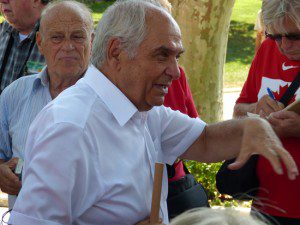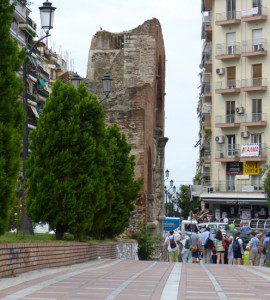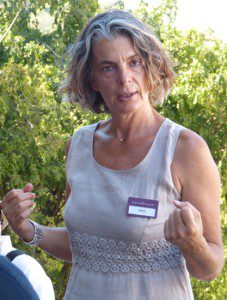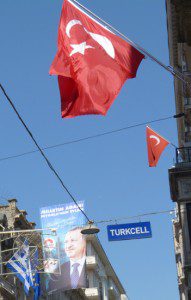
They say if you want to keep a conversation from getting out of hand, it’s best to avoid any reference to religion, politics or sex. And you’d think particularly in the Middle East that would be so. Still, a couple of days into my recent visit to Istanbul, I broke that convention and asked my guide if he was a practising Muslim. Ertan Sandikcioglu flicked his eyes skyward a quick second and offered his answer.
“I hope God will forgive me,” he said. “I am a Muslim, but I don’t pray five times a day.”
During my stay in Istanbul, I heard the traditional call to prayer, it seemed, every other minute. But with so many mosques in the city – Ertan said there were 1,800 of them – and loudspeakers in hundreds of minarets calling the faithful on most corners, it’s not difficult to see why some Muslims, including a tour guide, might find it difficult to earn a living if he was devout. So talking religion isn’t a taboo in Istanbul.
Of the 17 million people who live in Istanbul today, my guide explained, about 40 per cent live on the Asia (or eastern) side of the city and the other 60 per cent live on the European (or western) side. The story of Istanbul (or Constantinople) is a struggle between Asia and Europe, between rural and urban lifestyle, and between Islam and Christianity.
The Santa Sophia basilica illustrates the point. Built in 325 by Emperor Constantine, the church was converted to a mosque after the Ottoman conquest of 1453. After Turkey’s war of independence in the 1920s, however, the first president Ataturk determined the religious building’s fate. “He decided to separate church and state in Turkey,” Ertan said. “And he turned Hagia Sophia into a permanent museum.”

So much for religion. How about the second taboo, politics? A few days after my tour of Istanbul, I travelled into eastern Greece to Thessalonica, a city second only in importance (for Byzantine emperors) to Constantinople, but also said to be one of the first bases for the spread of Christianity beginning in 395 AD.
Never mind that, my guide, a very proud Greek Orthodox Christian woman named Varvara Chatzivakaleli felt compelled to offer her feelings about the political and economic state of modern Greece.
“Life is impossible in our country these days,” she said, lamenting the austerity measures that have left many fellow citizens out of work. “Well over 85,000 of people under the age of 30 have gone to Australia to find work.”
During a delay in traffic, at one point, Varvara pointed to what looked like empty apartments in downtown Thessalonica. She explained that most citizens in those addresses were likely unemployed, had no money for furnishings and were paying for rent on credit. She quite unashamedly blamed neighbouring lower-income Eastern Europeans for invading her city, in her opinion, a totally irresponsible Greek government, and unfair taxation.
“Most (apartment dwellers) are paying as much as 500 euros ($635) in taxes,” she said. “Who can live like that?”

And now you’re wondering about the sex taboo, I mentioned at the beginning. Well, it came up indirectly. Of course, one doesn’t have to dig too deeply into either religion or politics to find sex. Religious icons in Turkey and Greece constantly deal with the Virgin Mary or the symbolism of religious crusaders destroying their enemies by raping and pillaging.
Indeed, one of my stops this week included a cave on the Greek island of Patmos. Christians believe that the voice of God broke through the stone of the cave to deliver to St. John such images for the biblical Book of Revelations as a prostitute “drunk on the blood of saints.”
My guide during this particular tour was a vivacious and religious woman named Maria Vera Sakka, who went out of her way to point out she was named after the Virgin Mary, that she lived on Virgin Street in Athens, and that among her chosen careers in life had once been as a midwife assisting pregnant women with birth.
“I have other qualities of Artemis (the goddess of virginity),” she said. “I never got married and I never had children… but I feel a special relationship with God.”

I know that’s not the sexual content you were expecting. But here was a woman with very clear impressions of her spirituality, passionately involved with the creation of the Book of the Apocalypse in all its depravity, and unafraid to expose her deepest feelings about the content of her work.
One other thought about my contact with the three taboos of civil conversation this week… After having broached the subject of religion and politics with my Turkish guide Ertan Sandikcioglu, eventually I asked him about upcoming elections in his country and the fate of the Islamic president.
“The government is working hard to get it right,” he said. “But for us (in Istanbul) the future is West, not East.”
I am trying to get in touch with Ertan. We too spent days with him in Istanbul, and we have recommended him to others. I have his old email address. To your knowledge, is he still alive and well? Is he still in the business of tour guiding. He was probably the BEST guide we have ever had anywhere we’ve traveled across the world.